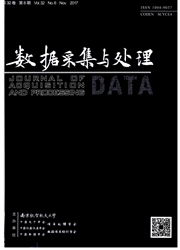

 中文摘要:
中文摘要:
The energy efficiency(EE) for the full-duplex massive multi-input multi-output(MIMO) system is investigated. Given the transmit powers of both the uplink and the downlink, the closed-form solutions of the optimal number of antennas and the maximum EE are achieved in the high regime of the signal-to-noise ratio(SNR). It is shown that the optimal number of antennas and the maximum EE gets larger with the increase in user numbers. To further improve the EE, an optimization algorithm with low complexity is proposed to jointly determine the number of antennas and the transmit powers of both the uplink and the downlink. It is shown that, the proposed algorithm can achieve the system performance very close to the exhaustive search.
 英文摘要:
英文摘要:
The energy efficiency(EE) for the full-duplex massive multi-input multi-output(MIMO) system is investigated. Given the transmit powers of both the uplink and the downlink, the closed-form solutions of the optimal number of antennas and the maximum EE are achieved in the high regime of the signal-to-noise ratio(SNR). It is shown that the optimal number of antennas and the maximum EE gets larger with the increase in user numbers. To further improve the EE, an optimization algorithm with low complexity is proposed to jointly determine the number of antennas and the transmit powers of both the uplink and the downlink. It is shown that, the proposed algorithm can achieve the system performance very close to the exhaustive search.
 同期刊论文项目
同期刊论文项目
 同项目期刊论文
同项目期刊论文
 期刊信息
期刊信息
